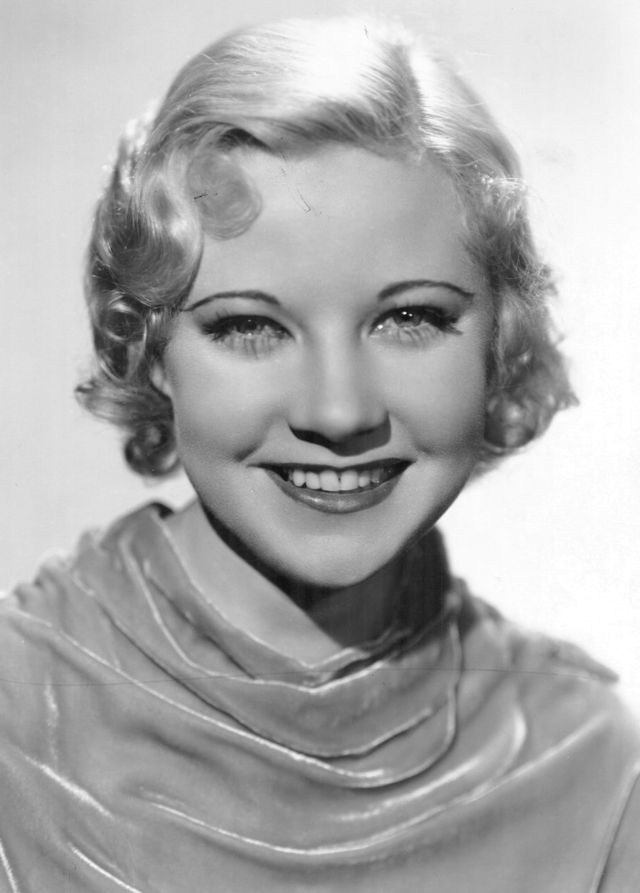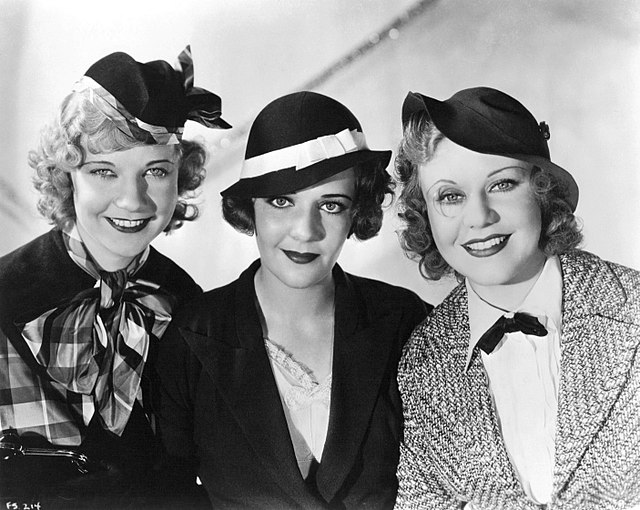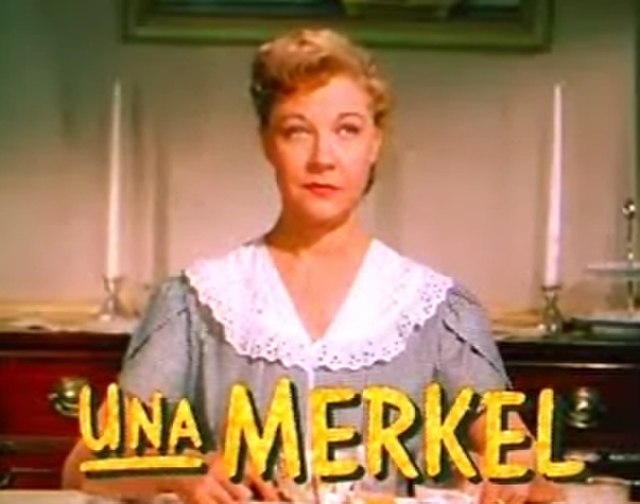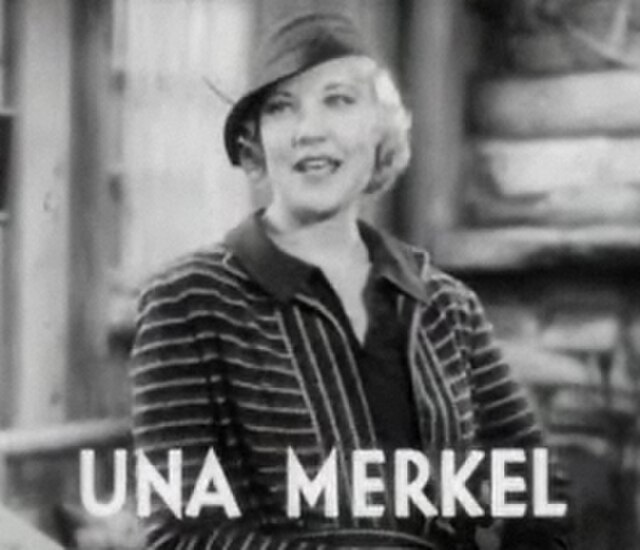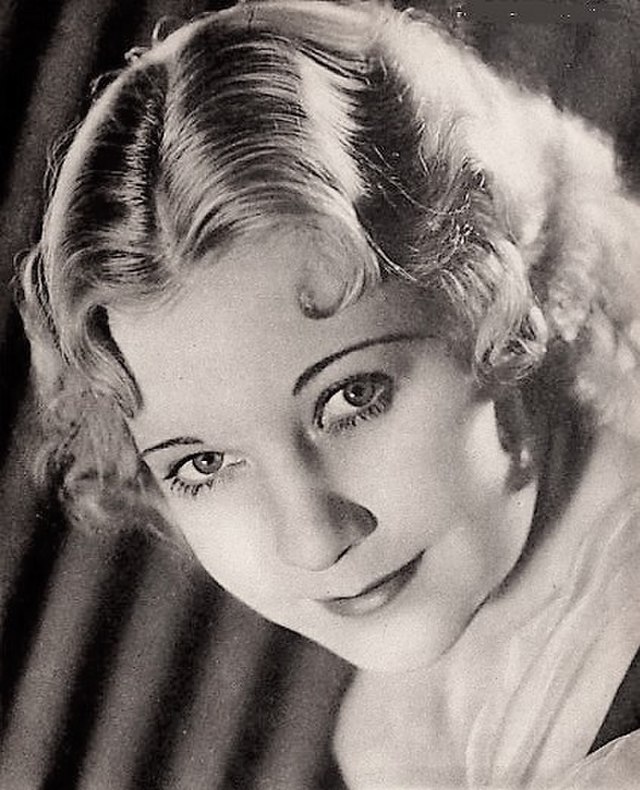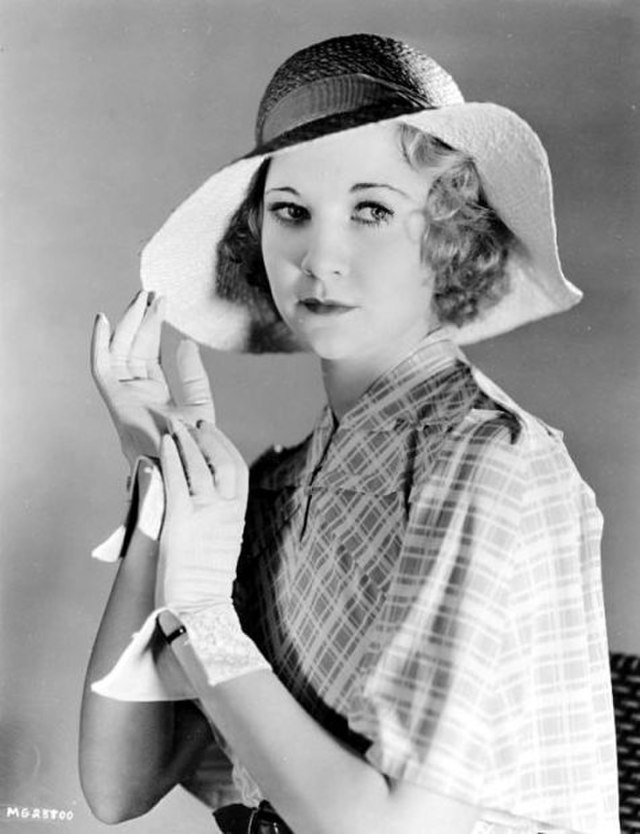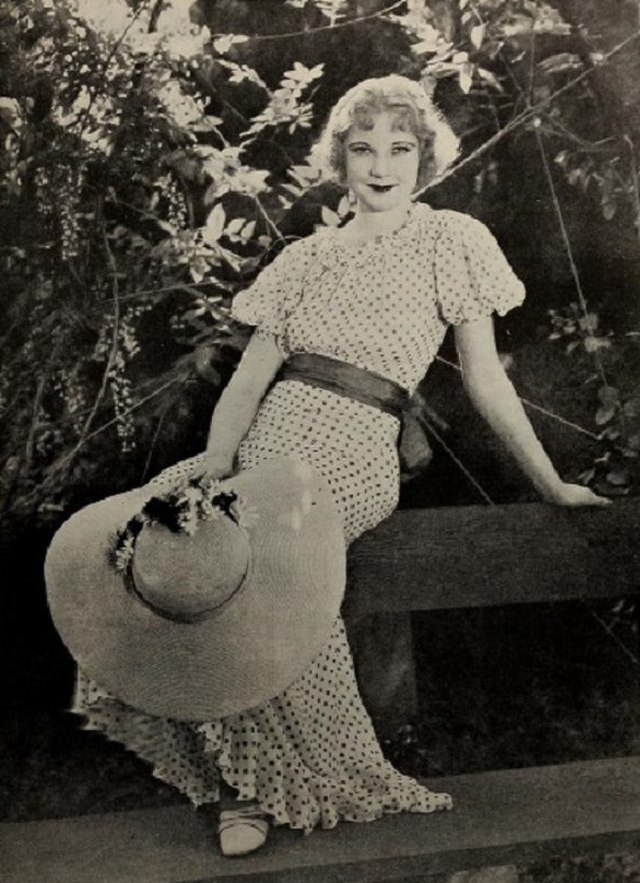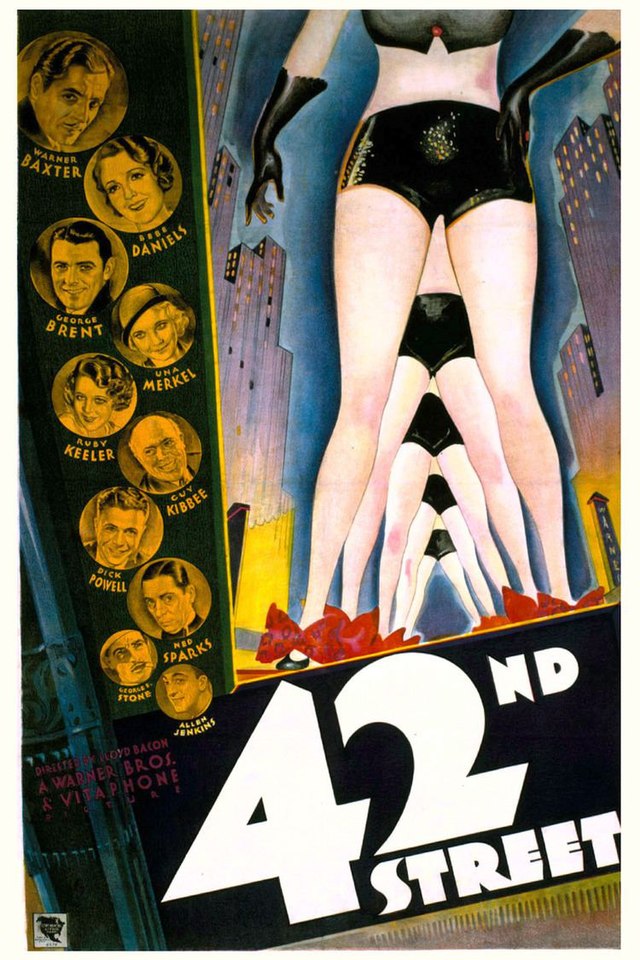Una Merkel
back| Full Name | Una Kohnfelder Merkel |
| Stage Name | Una Merkel |
| Born | December 10, 1903 |
| Birthplace | Covington, Kentucky, USA |
| Died | January 2, 1986 |
| Buried | Highland Cemetery, Fort Mitchell, Kentucky, USA |
| Married to | Never married |
| Children | None |
| Notable films | 42nd Street (1933) - Destry Rides Again (1939) - Born to Dance (1936) - Summer and Smoke (1961) |
Una Merkel
Hollywood's Witty Sidekick
Una Merkel (1903–1986) was a versatile character actress renowned for her wit, charm, and Southern warmth. Merkel transitioned from silent films to "talkies," gaining fame in pre-Code classics like 42nd Street (1933) and comedic roles in Destry Rides Again (1939).
She excelled as the wisecracking confidante, earning a reputation as Hollywood’s dependable scene-stealer.
Her career spanned five decades, with notable turns in Broadway, winning a Tony Award for The Ponder Heart (1956), and receiving an Academy Award nomination for Summer and Smoke (1961).
Related
Una Merkel (1903 – 1986)
Biography and Movie Career
Una Merkel, a beloved and versatile actress of Hollywood’s Golden Age, was born on December 10, 1903, in Covington, Kentucky, USA. She was the only child of Arno Merkel and Bessie Phares. Although born in Kentucky, her family relocated to Philadelphia and later to Nashville, Tennessee, where she spent much of her childhood. Her upbringing in the South helped develop the gentle charm and humor that would become hallmarks of her career.
Early Years and Path to Success
Una Merkel's fascination with the arts began at an early age. After completing her education, she pursued her interest in painting and acting, moving to New York City to study at the Art Students League. However, it was her theatrical aspirations that eventually took precedence. Initially, she worked in silent films during the late 1920s, even serving as a stand-in for Lillian Gish in The Wind (1928).
Merkel’s acting career took off when she transitioned into "talkies," with her distinctive Southern accent lending authenticity and charm to her roles. She gained early recognition in Abraham Lincoln (1930), directed by D.W. Griffith. Her career flourished in the 1930s, often portraying feisty best friends, comedic relief characters, or wisecracking confidantes in major films.
She became a staple of pre-Code Hollywood, appearing in iconic musicals such as 42nd Street (1933) and Broadway Melody of 1936 (1935). Merkel's comedic timing was her hallmark, and she often stole scenes with her quick wit and expressive face.
Her role as Lily Belle in the Western comedy Destry Rides Again (1939), alongside Marlene Dietrich and James Stewart, remains one of her most memorable performances. Merkel displayed a remarkable ability to balance humor with emotional depth, making her characters relatable and endearing.
Personal Life and Passions
Despite her enduring fame, Merkel led a relatively private life. She never married and had no children, dedicating much of her time to her work and her close-knit group of friends. Merkel was known for her love of animals, especially dogs, and was a supporter of humane societies.
Merkel also had a passion for painting, a talent she had nurtured in her youth. Though she didn't pursue it professionally, it remained a personal hobby throughout her life. She was described as warm, down-to-earth, and fiercely loyal to those close to her.
Later Career and Accolades
In the 1950s, as Hollywood shifted away from the studio system, Merkel transitioned to television and stage work. Her performance in the Broadway play The Ponder Heart (1956) earned her a Tony Award. She also received an Academy Award nomination for Best Supporting Actress for her role as Alma’s mother in Summer and Smoke (1961).
Merkel remained active in show business well into the 1960s, though she eventually retired to a quieter life.
Death and Legacy
Una Merkel passed away on January 2, 1986, in Los Angeles, California, at the age of 82. The cause of death was heart failure. She was laid to rest in Highland Cemetery in Fort Mitchell, Kentucky, near her birthplace.
Merkel’s legacy endures as one of Hollywood's most talented and versatile character actresses. She brought humor, warmth, and depth to every role she played, carving out a niche as a dependable and unforgettable performer. From musicals and comedies to dramatic roles, Una Merkel's career spanned nearly five decades, leaving an indelible mark on the film and theater industries.
Video with Images of Una Merkel
Analysis of Una Merkel's Acting Style
Una Merkel’s acting style was a unique blend of charm, wit, and naturalism, making her a standout performer during Hollywood’s Golden Age. Her versatility allowed her to seamlessly transition between comedic and dramatic roles, while her distinctive Southern accent and vibrant personality gave her performances a memorable warmth and relatability.
Key Features of Her Acting Style:
Natural Comedic Timing
Merkel excelled in comedic roles, often portraying the best friend, confidante, or sidekick with a sharp tongue and quick wit. Her ability to deliver one-liners with impeccable timing made her a favorite in screwball comedies and pre-Code films. She could convey humor without overshadowing her co-stars, creating chemistry that elevated entire scenes. For instance, in 42nd Street (1933), she played Lorraine Fleming with a snappy irreverence that perfectly complemented the film's energetic tone.
Relatability and Warmth
Merkel had an approachable quality that endeared her to audiences. She often portrayed "everyday women" who were both resilient and vulnerable. Whether as a wisecracking chorus girl or a loyal friend, Merkel’s characters often acted as the voice of reason or the emotional anchor within a story. This relatability was evident in Destry Rides Again (1939), where her role as the fiery Lily Belle was layered with humor and humanity, making her character more than just a comedic foil.
Expressive Physicality
Merkel's petite frame and expressive face were crucial elements of her acting. She had an understated but effective physicality, using gestures, glances, and posture to enhance her comedic or dramatic delivery. Her subtle reactions often added depth to her characters, allowing her to communicate emotion without excessive dialogue.
Southern Charm and Distinctive Voice
Her soft Southern drawl became a defining feature, adding an authentic and endearing quality to her performances. Merkel often played characters that reflected her own roots, bringing an air of sincerity and charm to roles in both urban and rural settings. This authenticity helped her stand out in ensemble casts, even in smaller roles.
Subtle Emotional Depth
Though she is best remembered for her comedic performances, Merkel was equally adept at drama. Her ability to infuse characters with emotional depth was particularly evident in later films like Summer and Smoke (1961). Her portrayal of Alma’s overbearing mother balanced sternness with glimpses of vulnerability, showcasing her range as an actress.
Adaptability Across Genres
Merkel's career spanned a variety of genres, from musicals like Born to Dance (1936) to Westerns like Destry Rides Again and sophisticated comedies like The Women in His Life (1933). Her adaptability allowed her to work alongside a wide range of leading actors and directors, effortlessly fitting into diverse cinematic worlds.
Overall Style and Legacy
Una Merkel’s acting style was rooted in a deep understanding of her characters’ humanity, whether they were comedic, dramatic, or somewhere in between. She had a rare ability to ground her performances in realism while still delivering the heightened entertainment that classic Hollywood demanded. Merkel’s combination of wit, charm, and authenticity not only made her a beloved character actress but also a crucial element of many films’ success.
Her legacy lies in her ability to shine in roles that might have been overlooked in less capable hands, proving that character actors could be just as vital to a film’s impact as its leading stars.
Quotes from Una Merkel
From Films
"Destry Rides Again" (1939)
o Lily Belle (Merkel):
“You’re nothing but a no-good, two-timing snake in the grass!”
Merkel’s fiery delivery of this line, directed at her cheating husband, showcases her comedic timing and knack for delivering sassy, unforgettable retorts.
"42nd Street" (1933)
o Lorraine Fleming (Merkel):
“I’m going out a youngster, but I’ve got to come back a star!”
This quip reflects the hopeful energy of her chorus girl character and became one of the defining lines of the film.
"Born to Dance" (1936)
o Jenny Saks (Merkel):
“That man couldn’t find a needle in a haystack even if he swallowed it!”
A classic example of Merkel's ability to deliver biting humor with a playful edge.
"The Bank Dick" (1940)
o Myrtle Souse (Merkel):
“Egbert, you’re the most aggravating man alive!”
Merkel perfectly captured the frustrations of her character in this slapstick comedy.
________________________________________
On Her Career and Life (Reported)
On her love for comedy:
“Drama’s fine, but give me something to laugh about, and I’m happy as a clam.”
o Merkel expressed her natural inclination for comedy, which she mastered throughout her career.
On her Southern roots:
“Being Southern isn’t just where you’re from, it’s how you see the world—with a bit more patience and a lot more humor.”
o Reflecting her own personality and the charm she brought to her roles.
On the importance of being a supporting actress:
“You don’t have to be the star to steal the show; sometimes, it’s better to be the one who makes everyone else shine.”
o Merkel’s philosophy toward her career as a character actress who consistently enhanced the films she appeared in.
________________________________________
Offscreen Humor and Anecdotes
• Una Merkel reportedly joked about her height often:
“I’m not short. I’m just compactly built for speed and wit.”
• During an interview about her Academy Award nomination for Summer and Smoke (1961), she quipped:
“Who’d have thought my loud mouth would earn me a spot next to the best?”
What Others said about Una Merkel
Industry Peers:
• Jean Harlow, her co-star in Red-Headed Woman (1932), once remarked: "Una's timing is impeccable; she brings a scene to life with just a glance or a quip."
• James Stewart, who worked with Merkel in Destry Rides Again (1939), noted: "Una had this natural ability to make everyone around her better. Her presence was a gift to any set."
Critics:
• The New York Times praised her performance in The Ponder Heart (1956), stating: "Merkel delivers a masterclass in comedic acting, her expressions speaking volumes without uttering a word."
• Film historian Leonard Maltin described her as "one of Hollywood's most reliable character actresses, bringing authenticity and warmth to every role."
Legacy:
• In a 2024 retrospective, Paste Magazine highlighted Merkel's enduring appeal: "Her performances remain the best pals a gal could wish for, almost a century after her heyday."
• The Hollywood Walk of Fame recognized her contributions with a star, commemorating her impact on the film industry.
Awards and Recognition
Una Merkel had a distinguished career in film, theater, and television, earning critical acclaim and several prestigious awards for her performances.
________________________________________
Academy Awards
• Academy Award Nomination for Best Supporting Actress (1962)
o Film: Summer and Smoke (1961)
o Role: Mrs. Winemiller
o Details: Merkel was nominated for her portrayal of Mrs. Winemiller, the emotionally unstable mother of the protagonist in this adaptation of Tennessee Williams' play. This nomination was a significant acknowledgment of her dramatic acting skills.
________________________________________
Tony Awards
• Tony Award for Best Featured Actress in a Play (1956)
o Play: The Ponder Heart
o Role: Miss Teeter
o Details: Merkel won the Tony Award for her performance in this Broadway production based on Eudora Welty's novella. Her role as Miss Teeter was celebrated for its comedic timing and depth, marking a highlight in her stage career.
________________________________________
Hollywood Walk of Fame
• Star on the Hollywood Walk of Fame (1960)
o Category: Motion Pictures
o Location: 6230 Hollywood Boulevard, Hollywood, California
o Details: In recognition of her contributions to the film industry, Una Merkel was awarded a star on the Hollywood Walk of Fame. This honor solidified her legacy in Hollywood history.
________________________________________
Additional Recognitions
• National Board of Review Award
o While not an individual award, Merkel was part of the ensemble cast of films that received accolades from the National Board of Review, reflecting the high quality of the productions she was involved in.
• Critical Acclaim and Industry Respect
o Throughout her career, Merkel was highly respected by her peers and received positive reviews from critics for both her comedic and dramatic roles. Her ability to bring authenticity and charm to her characters made her a valued actress in the industry.
________________________________________
Legacy and Honors
• Tributes and Retrospectives
o After her passing, film societies and festivals have held retrospectives of her work, celebrating her contributions to cinema and theater.
• Influence on Future Generations
o Merkel's performances have inspired actors who admire her versatility and skill in balancing humor with emotional depth.
Movies Starring Una Merkel
1920s
• 1923: "Love's Old Sweet Song"
A short film featuring a romantic narrative, notable for being one of Merkel's earliest screen appearances.
• 1924: "The Fifth Horseman"
A silent drama exploring themes of war and its aftermath, with Merkel in a supporting role.
1930s
• 1930: "Abraham Lincoln"
Directed by D.W. Griffith, this biographical film chronicles the life of the 16th U.S. President, with Merkel portraying Ann Rutledge, Lincoln's early love interest.
• 1930: "The Eyes of the World"
A drama centered on an artist's struggle between love and ambition, featuring Merkel as Sybil.
• 1930: "The Bat Whispers"
A mystery thriller about a masked criminal known as "The Bat," with Merkel playing Dale Van Gorder.
• 1931: "Command Performance"
A romantic comedy involving mistaken identities and royal intrigue, featuring Merkel as Princess Katerina.
• 1931: "Don't Bet on Women"
A comedy exploring the complexities of marriage and fidelity, with Merkel in a supporting role.
• 1931: "Six Cylinder Love"
A comedic take on the automobile craze of the era, highlighting the financial strains of car ownership.
• 1931: "The Maltese Falcon"
The original adaptation of Dashiell Hammett's novel, featuring Merkel as Effie Perine, secretary to detective Sam Spade.
• 1931: "Daddy Long Legs"
A romantic drama about an orphan and her mysterious benefactor, with Merkel portraying Sally McBride.
• 1931: "The Bargain"
A drama involving love and deception, featuring Merkel in a key role.
• 1931: "Wicked"
A crime drama exploring themes of betrayal and justice, with Merkel in a supporting role.
• 1931: "The Secret Witness"
A mystery revolving around a murder witnessed by a young woman, portrayed by Merkel.
• 1931: "Private Lives"
A comedy of manners about a divorced couple who rekindle their romance, featuring Merkel as Sibyl Chase.
• 1932: "She Wanted a Millionaire"
A drama about a woman's pursuit of wealth through marriage, with Merkel in a supporting role.
• 1932: "The Impatient Maiden"
A romantic drama exploring the relationship between a nurse and a doctor, featuring Merkel as Betty Merrick.
• 1932: "Man Wanted"
A romantic comedy about a female magazine editor and her male secretary, with Merkel in a supporting role.
• 1932: "Huddle"
A sports drama focusing on a working-class youth attending Yale, featuring Merkel as Thelma.
• 1932: "Red-Headed Woman"
A pre-Code comedy about a woman's unscrupulous rise in society, with Merkel as Sally, the protagonist's friend.
• 1932: "They Call It Sin"
A drama about a young woman's journey to New York to pursue a music career, featuring Merkel as Dixie Dare.
• 1932: "Men Are Such Fools"
A comedy exploring romantic entanglements and misunderstandings, with Merkel in a key role.
• 1933: "Whistling in the Dark"
A comedy-mystery involving a radio performer entangled in a real-life crime, featuring Merkel as Toby Van Buren.
• 1933: "The Secret of Madame Blanche"
A drama about a woman's sacrifices for her son, with Merkel portraying Ella.
• 1933: "42nd Street"
A classic musical showcasing the behind-the-scenes of a Broadway production, featuring Merkel as Lorraine Fleming, a seasoned chorus girl.
• 1933: "Clear All Wires!"
A comedy about a foreign correspondent's misadventures, with Merkel as Dolly.
• 1933: "Reunion in Vienna"
A romantic drama set against post-World War I Vienna, featuring Merkel as Ilsa Hinrich.
• 1933: "Midnight Mary"
A drama following a woman's tumultuous life, with Merkel as Bunny, her loyal friend.
• 1933: "Her First Mate"
A comedy about a tugboat captain and his wife, featuring Merkel as Hattie.
• 1933: "Broadway to Hollywood"
A musical drama tracing a family's rise in show business, with Merkel in a supporting role.
• 1933: "Beauty for Sale"
A drama about the lives of women working in a beauty salon, featuring Merkel as Carol Merrick.
• 1933: "Menu"
A short film with Merkel in a brief appearance.
• 1933: "Bombshell"
A satirical comedy about the life of a Hollywood starlet, with Merkel as Mac, her assistant.
• 1933: "Day of Reckoning"
A drama exploring the consequences of a man's criminal actions on his family, featuring Merkel as Mamie.
• 1933: "The Women in His Life"
A drama about a lawyer's complex relationships, with Merkel as Miss 'Simmy' Simmons.
• 1934: "This Side of Heaven"
A drama depicting a family's financial struggles during the Great Depression, featuring Merkel as Birdie.
• 1934: "Murder in the Private Car"
A mystery-comedy involving a series of murders on a train, with Merkel as Georgia Latham.
• 1934: "Paris Interlude"
A romantic drama set in Paris, featuring Merkel as Cassie.
• 1934: "The Cat's-Paw"
A political satire starring Harold Lloyd as a naive young man thrust into the world of corrupt city politics. Merkel plays Petunia Pratt, providing comedic relief as a scheming character.
• 1934: "Have a Heart"
A drama about a woman navigating her husband’s gambling addiction. Merkel plays Polly, a close friend to the protagonist.
• 1935: "Broadway Melody of 1936"
A musical comedy about a Broadway producer’s efforts to stage a successful show. Merkel plays Kitty Corbett, a humorous and loyal secretary.
• 1935: "Don't Bet on Blondes"
A lighthearted comedy about an insurance man who protects actresses from bad luck. Merkel portrays Marie, adding charm and wit.
• 1935: "The Night Is Young"
A romantic musical set in Vienna, involving a prince and a commoner. Merkel plays Fanni Kerner, a close confidante to the heroine.
• 1936: "Born to Dance"
A musical romance starring Eleanor Powell and James Stewart, set in the world of Broadway showbiz. Merkel provides comic relief as Jenny Saks, a wisecracking friend.
• 1936: "My American Wife"
A comedy-drama about an American woman navigating her new life in South America. Merkel plays Pauline, a lively supporting character.
• 1937: "Saratoga"
A romantic comedy set in the world of horse racing, starring Jean Harlow and Clark Gable. Merkel plays Fritzi, a spirited sidekick to Harlow’s character.
• 1937: "There Goes the Groom"
A comedy about a man trying to reconcile with his ex-fiancée after a series of misadventures. Merkel plays Minnie, his witty and supportive cousin.
• 1938: "The Mad Miss Manton"
A screwball comedy about a socialite who stumbles upon a murder mystery. Merkel plays Hilda, one of the socialite’s quirky friends.
• 1939: "Destry Rides Again"
A classic Western comedy starring James Stewart and Marlene Dietrich. Merkel shines as Lily Belle, a feisty and jealous woman caught in the town's antics.
• 1939: "On Borrowed Time"
A fantasy-drama about an elderly man using magic to outwit death. Merkel plays Marcia, a nurse who becomes entangled in the family’s struggle.
• 1940: "The Bank Dick"
A slapstick comedy starring W.C. Fields as a bumbling bank guard. Merkel plays Myrtle Souse, his exasperated wife.
1941–1950s
During this time, Merkel continued appearing in films, primarily in supporting roles, and later transitioned to stage and television work.
• 1961: "Summer and Smoke"
A drama based on Tennessee Williams' play, in which Merkel plays Mrs. Winemiller, the overbearing mother of the lead character. Her performance earned her an Academy Award nomination for Best Supporting Actress.

